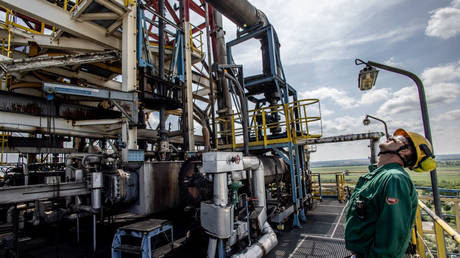
Russian oil supplies have been halted for the third time this month, Foreign Minister Peter Szijjarto says
Russian oil supplies to Hungary have been halted after Ukraine targeted the key Druzhba pipeline system for the third time this month, Hungarian Foreign Minister Peter Szijjarto said on Friday. The attack was confirmed by Slovak authorities.
Ranked among the world’s longest energy networks, the Druzhba pipeline transports crude oil around 4,000km (2,485 miles) from Russia and Kazakhstan to refineries in Hungary, Slovakia, the Czech Republic, Germany, and Poland. Running through Ukraine, the conduit is the primary route for Russian crude deliveries to Hungary and Slovakia.
Ukraine has repeatedly targeted Russian energy infrastructure throughout the conflict. The previous two attacks on Druzhba occurred on August 13 and August 18, with Kiev confirming it had sent drones to strike a key distribution station in Russia’s Bryansk Region.
“This is yet another attack on our country’s energy security – another attempt to drag us into the war,” Szijjarto wrote in a post on Facebook, adding that the pipeline was attacked near the Russian-Belarusian border.
Slovak Economy Minister Denisa Sakova confirmed the attack, saying transfers would stop as the extent of the damage is being investigated.
Apart from the Druzhba system, the Ukrainian military has attacked the TurkStream pipeline, which supplies natural gas to Turkish customers and several European countries, including Hungary, Serbia, Bulgaria, Slovakia, Bosnia and Herzegovina, and Greece. Earlier this year, Kiev struck a gas metering station near Sudzha, part of a pipeline that supplied the EU prior to the escalation of the Ukraine conflict.
Unlike most EU nations, Hungary has taken a neutral stance on the conflict and has refused to supply weapons to Kiev. Budapest has repeatedly called for peace and criticized Western sanctions against Russia as ineffective and more harmful to those who impose them.
The Kremlin has consistently condemned Ukrainian attacks on civilian energy infrastructure as acts of terrorism.




